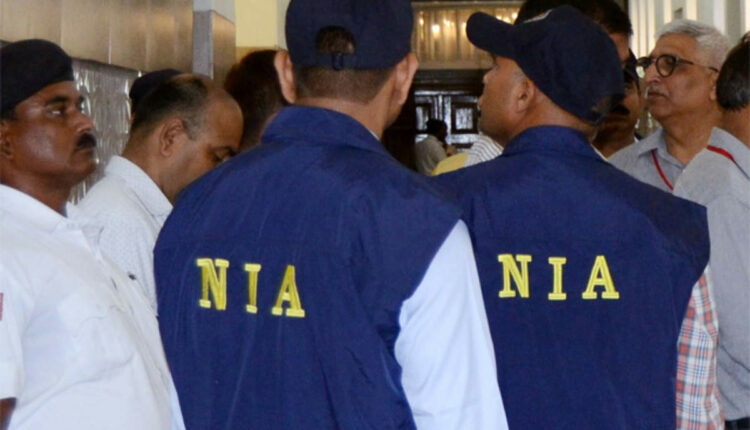The National Investigation Agency (NIA) has chargesheeted 24 operatives of international human trafficking syndicates involved in trafficking of Bangladeshis and Rohingyas of Myanmar origin into India with forged Indian identity documents. The chargesheeted accused include four Bangladesh nationals and one Rohingya of Myanmar origin.
The chargesheet was filed on Monday before the NIA Special Court, Assam (Guwahati) under various provisions of IPC, Foreigners Act and Passport (Entry into India) Act, 1920 read with Rule Passport (Entry into India) Rules, 1950.
A total of 29 persons were initially arrested by the NIA in massive raids conducted across 39 locations in Tripura, Assam, J&K and West Bengal in coordination with the State police agencies. A large number of incriminating documents, forged Indian identity documents, bank documents and digital devices were seized during the raids. Subsequently, based on investigational leads, four more accused were apprehended from Tripura, taking the total number to 33.
The case was initially registered by Assam Police under Passport Act 1967 against some anti-social elements, following credible inputs that the organised human trafficking syndicates were involved in trafficking Bangladeshi nationals and Rohingyas of Myanmar origin into India with forged documents for carrying out anti-India activities. NIA subsequently took over the case and re-registered it as RC-01/2023/NIA/GUW.
Investigations by NIA revealed that international human trafficking syndicates were active along the Indo-Bangladesh international border in Tripura, Assam, West Bengal and other areas. These syndicates were regularly trafficking Rohingyas and Bangladeshis, and preparing forged Indian identity documents with the intention to settle them in various parts of the country.
The network also had linkages with facilitators and traffickers operating in other parts of the country and across the border, as part of a larger network engaged in human trafficking activities through the Indo-Bangladesh border. Investigations further revealed that the syndicates on both sides of the border conspired and offered inducements to obtain the consent of the trafficked individuals. The accused would prepare forged Indian identity documents, and also arrange bookings, shelters, transportation and their further travel to the hinterland, as per the investigational findings.
The traffickers exploited the victims and arranged their employment in various unorganised sectors on meagre earnings and settled them in different parts of the country. The trafficked girls and women were exploited in various other forms by practising fraud and deception, with some Rohingya women also being sold to older men for marriage. As per the investigations, Indian ID documents were obtained by the Bangladeshi nationals in connivance with local bodies on fake or forged supporting documents and certificates furnished by the local officials.
3 Comments
Leave A Reply



957454 839541Read more on that great Post, I linked to you Thank you. 60130
636916 265809Extremely instructive and excellent bodily structure of subject matter, now thats user pleasant (:. 712320
454351 221653This really is a nice weblog i must say, typically i don????t post comments on other people???? blogs but would like to say that this post truly forced me to do so! 272453